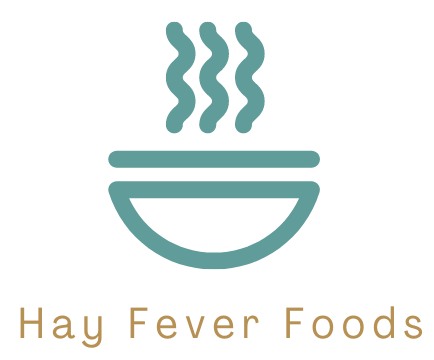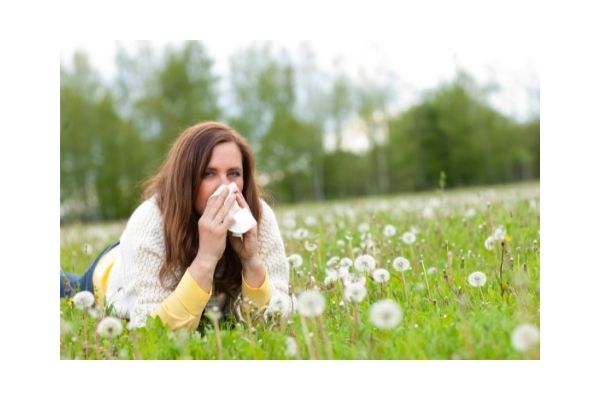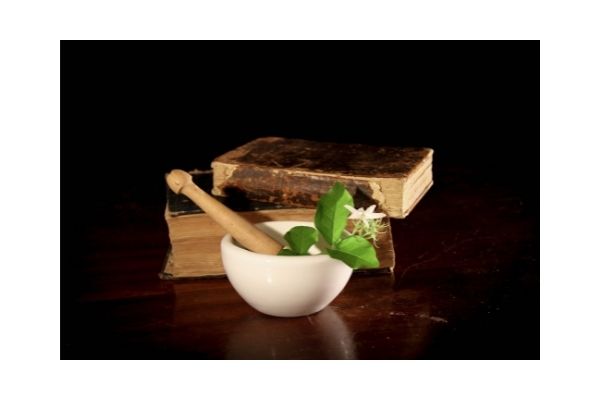Asthma occurs when the airways swell, narrow, and produce extra mucus that makes breathing difficult. In Asthma, the narrowing, swelling of airways and the accumulation of mucus trigger coughing, shortness of breath, and wheezing (a whistling sound).
According to Asthma UK, around 5.4 million people in the UK have Asthma. Meaning, one in every 12 adults and one in every 11 children.
It is well established that Asthma is a long-term condition that affects the airways carrying air in and out of your lungs.
According to Mayo Clinic, ‘Asthma is a condition in which your airways narrow and swell and may produce extra mucus. This can make breathing difficult and trigger coughing, a whistling sound (wheezing) when you breathe out and shortness of breath.’
From the Ayurveda perspective, Asthma is the excess accumulation and generation of phlegm in the lungs. The lungs are overworked due to excess phlegm causing them to swell and making it difficult to breathe.
All lung-related problems are related to phlegm (Kapha dosha) which is characteristically cold. Constant consumption of food that is cold (not temperature) and also because of the cold environment, the phlegm generating systems are compromised, and excess phlegm is produced in our lungs, creating an imbalance.
The symptoms of the dosha imbalance, causing excess phlegm in our lungs are similar to the symptoms of Asthma:
| Excess phlegm in lungs | Asthma symptoms (Yes/No) |
| Stuff or clogged nose | Yes |
| Chest congestion or tightness | Yes |
| Coughing out phlegm | Yes |
| Wheeze | Yes |
| Shortness of breath | Yes |
| Heavy head | Yes |
| Sneezing | Yes |
| Dry coughing | Yes |
| Feeling tired | Yes |
This excess phlegm then tries to come out (common cold) and the part of which was unable to, dries up and gets stuck in the lungs. This dry phlegm in the lungs blocks the airways straining our respiratory tract, making it difficult to breathe normally.
So, if we treat the phlegm generating system in our body and restore the balance by adding an opposite remedy, we will be treating Asthma as well.
What causes the imbalance?
Our food habits. That’s correct. Our environment and the food we consume has a significant role in maintaining the balance.
Basics
According to Ayurveda, the 5 senses (sight, sound, smell, taste, and touch) are experienced via 20 different qualities or attributes. (E.g. Cold, Dull, Heavy, Oily, Wet)
Based on these 20 attributes, Ayurveda treats ailments by adding their opposing remedy. (E.g. Cold – Hot, Dull – Sharp, Heavy – light, Oily – Brittle)
For instance, drinking cold water is NOT recommended for Kapha dosha (so as not to increase the heaviness, and cold). To reduce excess Kapha dosha, the opposite quality of that constitution (light and hot) such as drinking hot bearable water would be recommended.
The trick to restoring the balance is to add the opposing remedy.
To control excess phlegm which is cold, we need an opposing remedy which is hot. Below are some foods, based on Ayurveda’s hot and cold (diagnosis and treatment tool) perspective.
Phlegm provoking food: Cold
- Milk and milk products
- Rice and rice products
- Apple
- Banana
- Sapota/chikoo
- Custard apple
- Cucumber
- Aloe vera or Aloe vera products
Phlegm controlling foods: Hot
Food given in the below list is a good source of generating heat in the body to control the cold-related health problems and can be used as home remedies for Asthma
- Ginger
- Cumin
- Honey
- Coconut
- Carom seeds
- Black pepper
- Nutmeg
- Turmeric
- Hibiscus
- Chillies
Ayurveda states that the hot and cold body balance can be maintained through the daily food that we consume and the environment. Fortunately, with the help of some specific but straightforward daily food preparations, the cold and heat imbalance can be addressed, and the symptoms of Asthma caused by the imbalance of Kapha dosha can be effectively managed.







